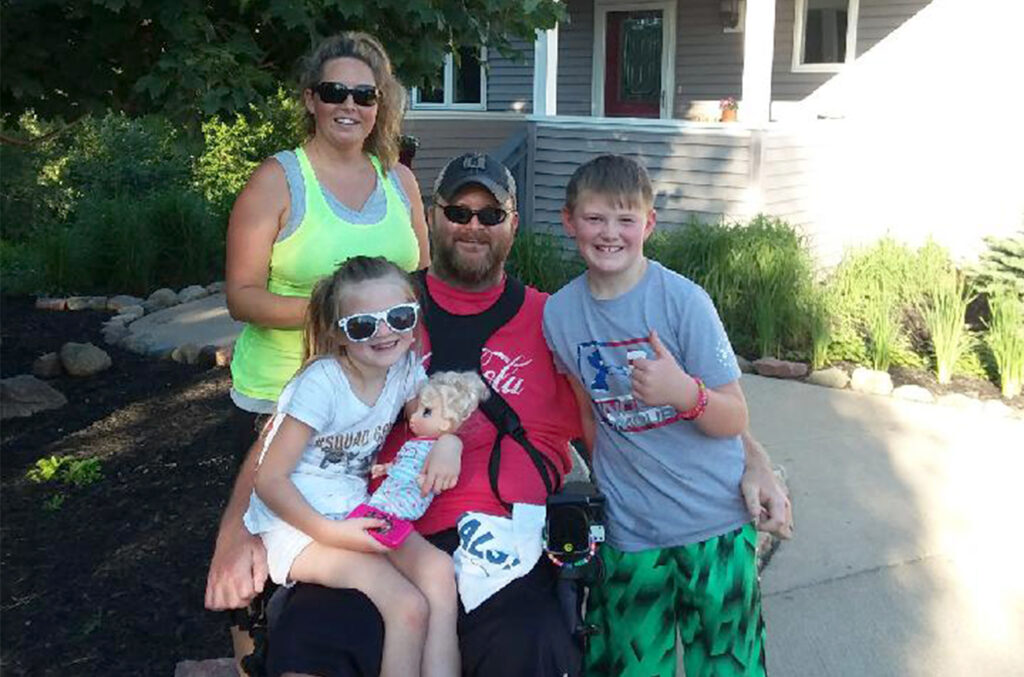After being thrown from an ATV, Chad Pritts cushioned his son’s fall, preventing major injuries for his five-year-old. Pritts, however, wasn’t so fortunate.

The father of two was left paralyzed from the chest down, unable to do things he used to take for granted: bathing, eating, dressing, and helping, even playing, with his children.
He couldn’t work, and his wife had to care for him full-time. So when they heard about a clinical trial to assess whether some mobility can be restored to people with spinal cord injuries, they hoped he would qualify.
Led by Washington University neurosurgeon Wilson Zachary Ray, MD, the study is assessing whether surgically rerouting nerves can restore hand and arm function in people who have suffered spinal cord injuries in their necks.
Pritts was accepted into the study and can now do things he couldn’t, including taking his medication, lifting a glass of water, writing with a pen, and plugging in a phone charger, basically anything that involves a pinch of his fingers.
Participants sought for a spinal cord-injury study. For more information, please contact Linda Koester at 314-362-7368 or koesterl@wustl.edu.
“I have not only regained some independence, but also have a better outlook on life as many caregiver duties have been lifted off my wife and family as a result of this procedure,” said Pritts.
During the phase 1 trial, some people had very profound, dramatic improvements and did very well, like Chad Pritts, according to Ray. Others had very minimal functional improvements that didn’t add to their independence.
“What we are doing with this phase 2 trial is determining who is most likely to benefit from this procedure,” he says.
While the study is led by Washington University experts, the clinical trial is being conducted at medical centers affiliated with seven universities across North America – Washington University, Stanford University, and the University of Utah, of Michigan, of Calgary, of Pennsylvania, and of Texas – because no single site has enough eligible patients. Funded by a $3.5 million grant from the U.S. Department of Defense, the phase 2 trial has already enrolled 30 people who were paralyzed by a spinal cord injury in the neck within the last three years and have seen no improvement in their function for at least six months.
Each participant undergoes surgery to attach a nerve from above the site of injury to nerves below the site of injury that connect to muscles in the hands and arms. The patients then participate in regular physical therapy for the next two years. Every six months, the researchers measure participants’ ability to extend and turn their arms and grip with their hands.
By analyzing the results of the surgery in a large group of people, the researchers hope to identify the optimal time after injury to perform the procedure, which kinds of injuries are best treated with this approach, and other factors that affect how much hand and arm function people regain.
A multi-disciplinary team is involved in each case. At Washington University, that team includes hand surgeon Martin Boyer, MD, physiatrist and spinal cord injury expert Neringa Juknis, MD and Ray.
Participants are still needed at all seven sites. For more information, please contact Linda Koester at 314-362-7368 or koesterl@wustl.edu. Further details about the study can be found on ClinicalTrials.gov (ID# NCT04023591).
